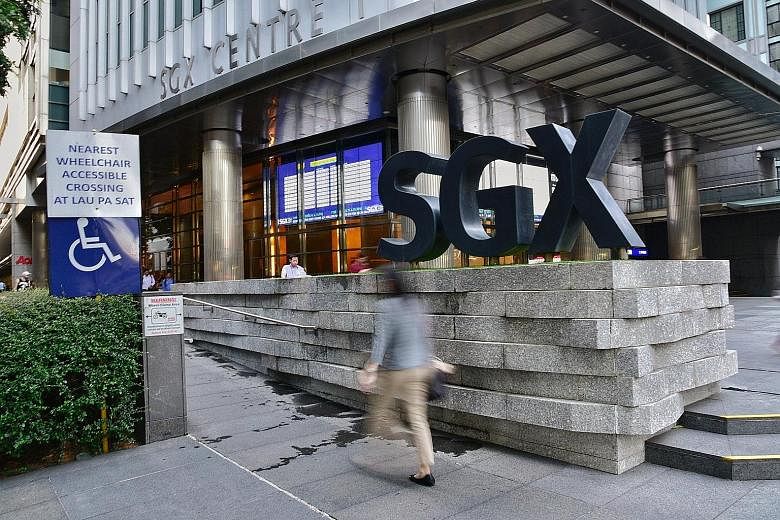The Singapore Exchange (SGX) has proposed changes to clearing rules for both derivatives and securities, with a public feedback exercise launched yesterday.
The proposed amendments will enhance the default management capabilities of both clearing houses, the SGX said. It expects to put the measures in place in the fourth quarter of this year, subject to regulatory approval.
The Central Depository (CDP) for securities trading could be given the power to write off defaulted members' unsettled buy trades at a loss to the CDP, if those securities are not force-sold within seven days of the default being declared.
Meanwhile, the Singapore Exchange Derivatives Clearing (SGX-DC) could potentially have an auction protocol for liquidating defaulted members' positions in exchange-traded derivatives contracts and over-the-counter commodities contracts, with a loss distribution mechanism to address losses arising from such auctions.
That might involve "sub-waterfalls" for losses from those auctions as well as over-the-counter financial derivatives contract auctions, to be folded into the existing SGX-DC Clearing Fund "waterfall" for allocating losses from a clearing member's default.
The clearing house default waterfall refers to how central counterparties (CCPs) take on their trading members' default risks. The waterfall structure typically taps the clearing houses' own capital - and, in an extreme case, that of non-defaulting members - if any defaulting members cannot absorb losses themselves.
SGX-DC would also be able to unilaterally terminate positions of non-defaulting members that exactly offset the defaulted clearing members' positions, for all classes of contracts, as well as revise the existing loss distribution mechanism for over-the-counter financial derivatives contract auctions.
"In the normal course of business, any position a CCP takes on with one clearing member is always offset by an opposite position taken on with a second clearing member," the Singapore Exchange Regulation said in the consultation paper. "This ensures that the CCPs are not exposed to market risk due to changes in market values of trades they are counterparties to.
"However, when a SGX-DC or CDP clearing member defaults on outstanding contracts, the relevant CCP will not have a matched book. The CCP will be exposed to market risk and could possibly incur losses. In an extreme scenario, such losses could impede the CCP's provision of counterparty clearing services, which in turn may trigger or transmit systemic disruption in Singapore's financial market and beyond."
SGX's chief risk officer Agnes Koh said in a media statement: "SGX's primary remit of upholding the health and efficiency of Singapore's financial market means we have a duty to ensure the continuity of the broader market in the event a clearing member defaults.
"We are constantly reviewing and enhancing our risk management practices. We have sought to do so with this consultation by balancing global best practices, commercial practicalities and operational feasibility."
The public consultation closes on Aug 16.

